Application of rheometer in battery slurry industry
Background
At present, the core of both solar cells and lithium-ion batteries is lithium-ion batteries. The preparation of lithium battery electrode slurry is the first process of lithium battery production, and it is also the most important link.
The electrode manufacturing of a lithium battery includes a positive electrode slurry composed of a binder, a conductive agent, a positive electrode material, and the like, and a negative electrode slurry composed of a binder, graphite carbon powder, or the like. The preparation of the positive and negative slurry includes a series of processes such as mixing, dissolving and dispersing between liquid and liquid, liquid and solid materials, and is accompanied by changes in temperature, viscosity and environment in the process.
In the positive and negative slurry, the dispersibility and uniformity of the particulate active material directly affect the movement of lithium ions between the two poles of the battery, so the dispersion of the slurry of each pole piece material in the production of lithium ion batteries is crucial. The quality of the slurry dispersion directly affects the quality of the subsequent lithium ion battery production and the performance of the product.
Electrode slurry is a high solids suspension system with shear thinning characteristics, strong thixotropy, yield properties and viscoelastic properties, showing complex non-Newtonian fluid behavior. However, the recognition of the importance of the rheological properties of the slurry has yet to be improved. Some customers are currently only testing the viscosity at a single shear rate, and cannot fully characterize the rheological properties of the slurry to guide the production process.
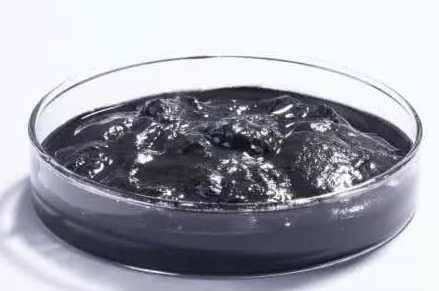
Rheological property analysis
1, the definition of viscosity (see below)

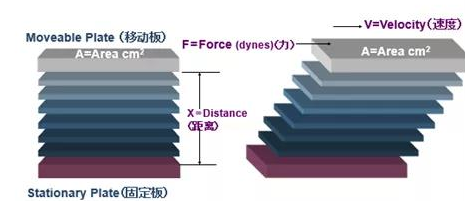
2. Classification of fluids (Newtonian fluids and non-Newtonian fluids)
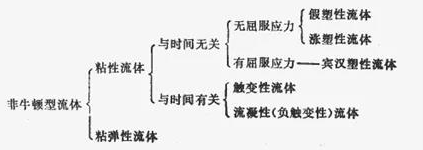
Among them, the most important types we focus on are pseudoplastic fluid (green line below), Bingham fluid (black line below) and thixotropic fluid.
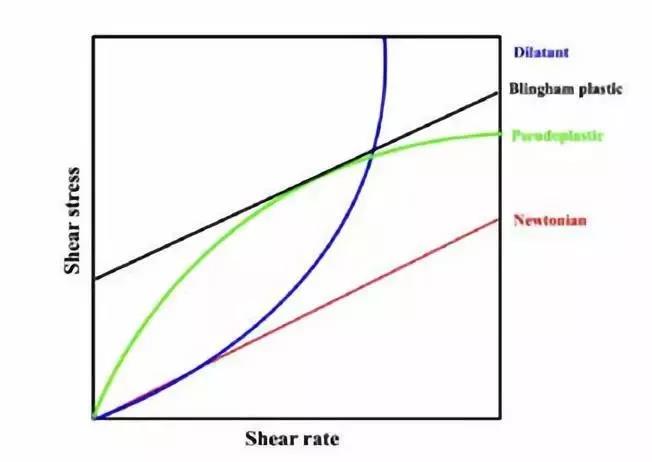
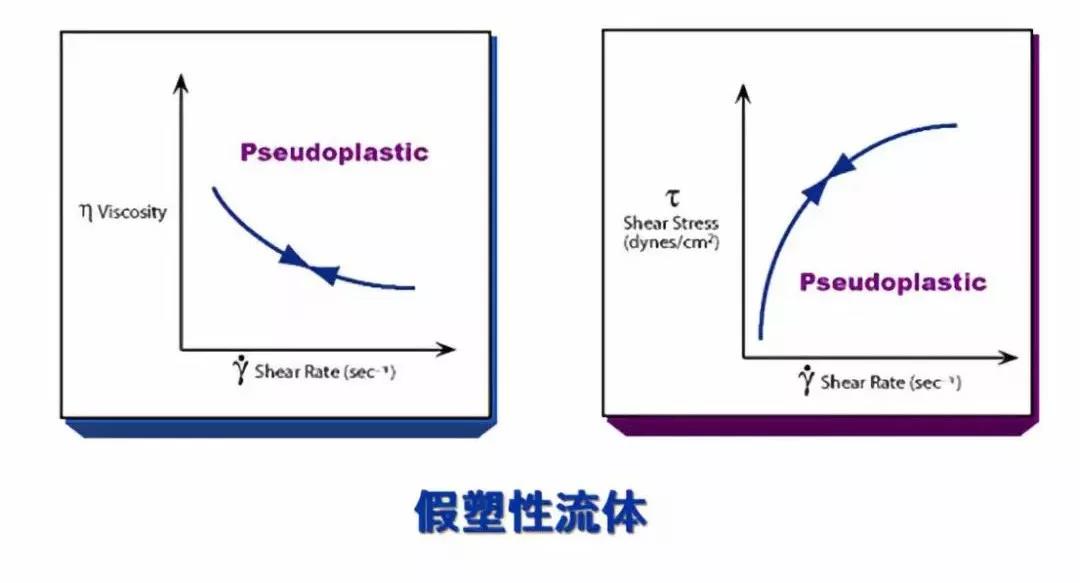
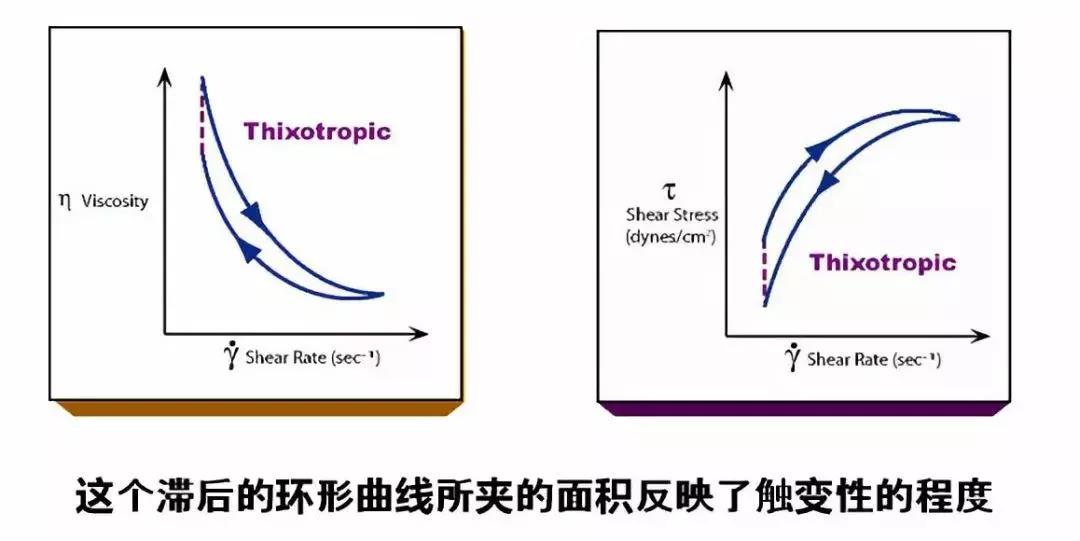
Test Equipment: RST Series Touch Screen Rheometer 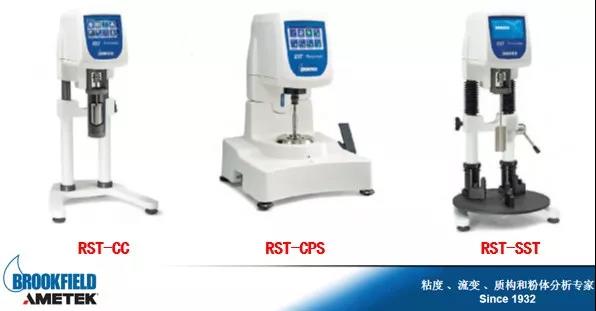
The figure above reflects the thixotropy of the sample (ie shear thinning and time dependence)
Test Methods
In addition to the single point viscosity of the battery slurry, the following test methods are commonly used:
1. Shear rate change (shear rate sweep, speed change) test (0-260 1/S), the test conditions used in different cases will be different.
Purpose: The coating process of the battery slurry is a high shear rate process, and the shear viscosity of the battery slurry cannot be too high at high shear rate ranges. Therefore, we need to know whether the slurry can reach the ideal viscosity state under high shear (easy to coat, generally the nozzle for coating is small, the viscosity is high, it is easy to block the nozzle), even if it is sprayed from the nozzle, the viscosity is high. Not easy to coat.
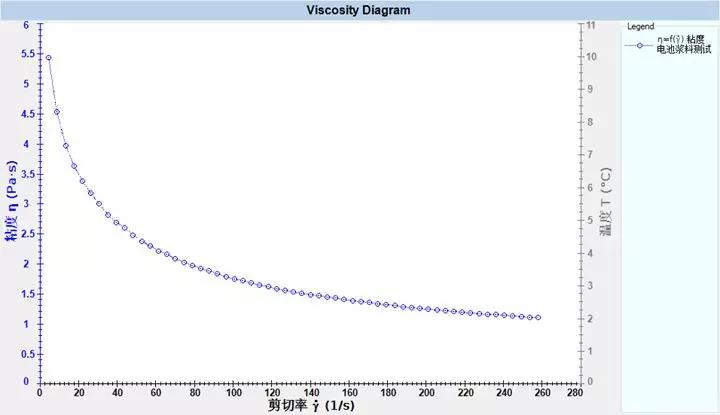
Thixotropy results (we can pass multiple tests to arrive at an ideal range of results).
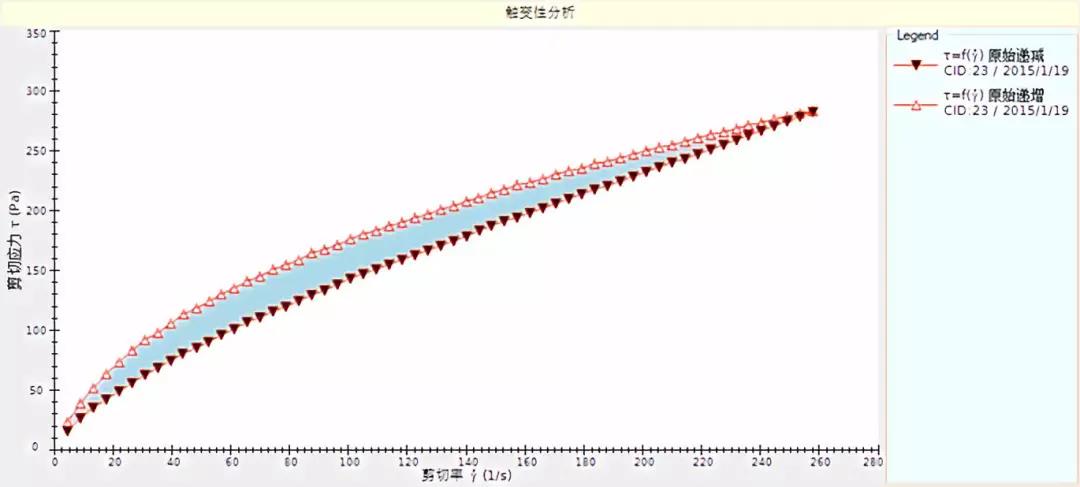
3, "zero" shear test
Purpose: Since the slurry is mostly a metal dispersion (the most common now is silver paste), confirm the viscosity of the slurry under standing (ie under storage conditions). 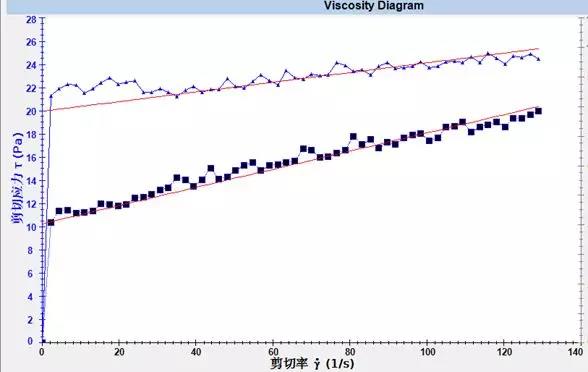
Conclusion and analysis
Viscosity is an important factor affecting the quality of battery paste:
1. Film formation and coating performance influencing the screen printing process of the slurry;
2, affecting the storage and transportation of the slurry, lasting stability and other properties.
Rheometers have important applications in the battery paste industry:
1. Test the viscosity characteristics of the battery slurry to confirm the flow properties of the battery slurry;
2, through the "zero" shear viscosity test to evaluate the storage and transport stability of the battery slurry (can also be used together with the stabilizer to characterize the stability of the sample);
3. Test the viscosity of the battery slurry at a high shear rate, and evaluate its coating properties and performance during mixed production;
4. Test the thixotropy of the battery slurry to evaluate its leveling performance.
The effect of silver paste screen printing directly affects the performance of lithium battery, and the effect of screen printing is determined by the rheological properties of silver paste. Therefore, the rheological properties of battery paste are the key concerns. Physical parameters.
PCR Reagent For Reproductive Tract Infections
PCR,PCR Reagent,Molecular diagnosis,Sexually Transmitted Infections,STDs,Reproductive Tract Infections
Shenzhen Uni-medica Technology Co.,Ltd , https://www.unimedicadevice.com